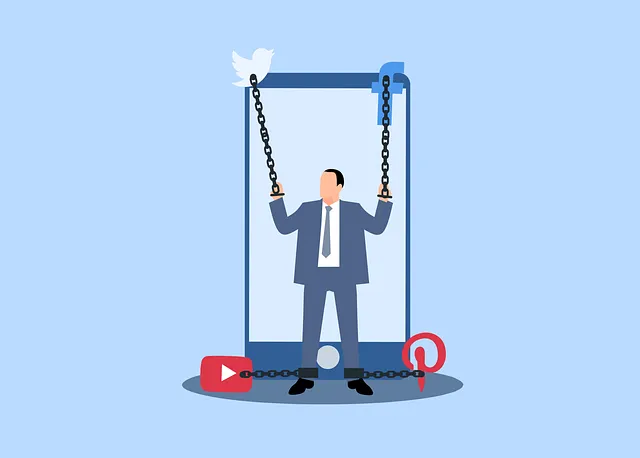Kaiser Permanente's community outreach programs in Lone Tree focus on improving mental healthcare accessibility for underserved populations by understanding local needs and cultural contexts, offering services like the Mental Wellness Podcast Series. This proactive approach builds trust, encourages open dialogue about mental health, and enhances community well-being through holistic mental wellness initiatives. Their creative strategies, including destigmatizing mental health with podcasts and providing accessible counseling services, foster a supportive community where residents can openly discuss emotional well-being. Measuring success involves setting clear goals, using relevant metrics like workshop participation rates and improvements in mental health outcomes, and conducting comprehensive risk assessments for program safety.
Community outreach programs play a pivotal role in bridging healthcare gaps, especially in areas like Lone Tree where access can be limited. This article explores the significance of such initiatives, focusing on mental health services provided by Kaiser Permanente. We delve into their offerings in Lone Tree and provide an overview of successful implementation strategies. Key topics include measuring impact and engaging communities effectively. Understanding these aspects is crucial for organizations aiming to improve healthcare accessibility through outreach, particularly regarding mental health services in Lone Tree.
- Understanding Community Outreach: A Key to Healthcare Accessibility
- Kaiser Permanente's Mental Health Services: An Overview
- Implementing Effective Outreach Programs in Lone Tree
- Measuring Success and Impact of Community Engagement Strategies
Understanding Community Outreach: A Key to Healthcare Accessibility

Community outreach programs play a pivotal role in enhancing healthcare accessibility, especially for underserved populations. By reaching out to communities directly, organizations like Kaiser Permanente can bridge the gap between care and those who need it most. This proactive approach ensures that mental health services, such as those offered by Kaiser Permanente in Lone Tree, are not only available but also accessible and acceptable to diverse communities.
Implementing a robust Community Outreach Program Implementation requires a nuanced understanding of local needs and cultural contexts. The Mental Wellness Podcast Series Production can be a powerful tool within this strategy, addressing common concerns like anxiety relief and providing valuable educational content. Such initiatives foster trust, encourage open dialogue about mental health, and ultimately improve community well-being, reflecting a holistic commitment to mental wellness.
Kaiser Permanente's Mental Health Services: An Overview

Kaiser Permanente, a renowned healthcare organization, has made significant strides in addressing mental health concerns within its communities, particularly in Lone Tree and surrounding areas. Their comprehensive Mental Health Services are designed to provide holistic support for individuals struggling with various mental health challenges. This includes a range of programs tailored to different needs, ensuring accessibility and affordability.
The services offered focus not only on treating symptoms but also on fostering empathy and promoting mental wellness coaching. They have specialized teams that employ innovative anxiety relief techniques, combining traditional therapies with modern approaches to cater to diverse populations. Through these initiatives, Kaiser Permanente aims to create a supportive environment, encouraging open conversations about mental health and enabling individuals to lead fulfilling lives.
Implementing Effective Outreach Programs in Lone Tree

Lone Tree communities can greatly benefit from well-implemented outreach programs, especially when focusing on mental health services. Kaiser Permanente, known for its comprehensive healthcare offerings, also prioritizes mental wellness in Lone Tree through various initiatives. One effective strategy is to leverage communication channels like social media and community events to spread awareness about available resources, such as counseling services and Depression Prevention programs. These programs aim to destigmatize mental health issues and encourage residents to seek support.
The success of outreach lies in innovative approaches, like producing engaging Mental Wellness Podcast Series that cater to diverse audiences. By employing creative communication strategies, these podcasts can reach a broader spectrum of individuals, offering valuable insights into managing stress, anxiety, and other common mental health challenges. Such initiatives not only promote mental wellness but also foster a supportive community environment where everyone feels comfortable discussing and addressing their emotional well-being, including access to Kaiser Permanente’s specialized services in Lone Tree.
Measuring Success and Impact of Community Engagement Strategies

Measuring the success and impact of community outreach programs is a vital step in understanding their effectiveness, especially when focusing on mental health services like those offered by Kaiser Permanente in Lone Tree. This process involves setting clear goals and utilizing relevant metrics to assess how well these initiatives engage and support the local community. For instance, evaluating participation rates in workshops or awareness campaigns can provide insights into the reach and appeal of the program.
Additionally, tracking improvements in mental health outcomes within the community over time is crucial. This could involve measuring changes in individual well-being, reduced stigma levels, or increased access to support services like Trauma Support Services. A comprehensive Risk Assessment for Mental Health Professionals might also be employed to ensure the safety and effectiveness of these programs, fostering a positive environment that encourages open discussions about mental health and promotes Positive Thinking within the community.
Community outreach programs, like those implemented by Kaiser Permanente in Lone Tree, play a pivotal role in enhancing healthcare accessibility. By understanding the unique needs of local communities and leveraging strategies that measure impact, organizations such as Kaiser can effectively address mental health disparities. In this case, Kaiser Permanente’s services in Lone Tree highlight successful outreach models that not only improve access to care but also foster community engagement and well-being. This approach ensures that essential mental health resources reach those who need them most, ultimately contributing to a healthier society.
